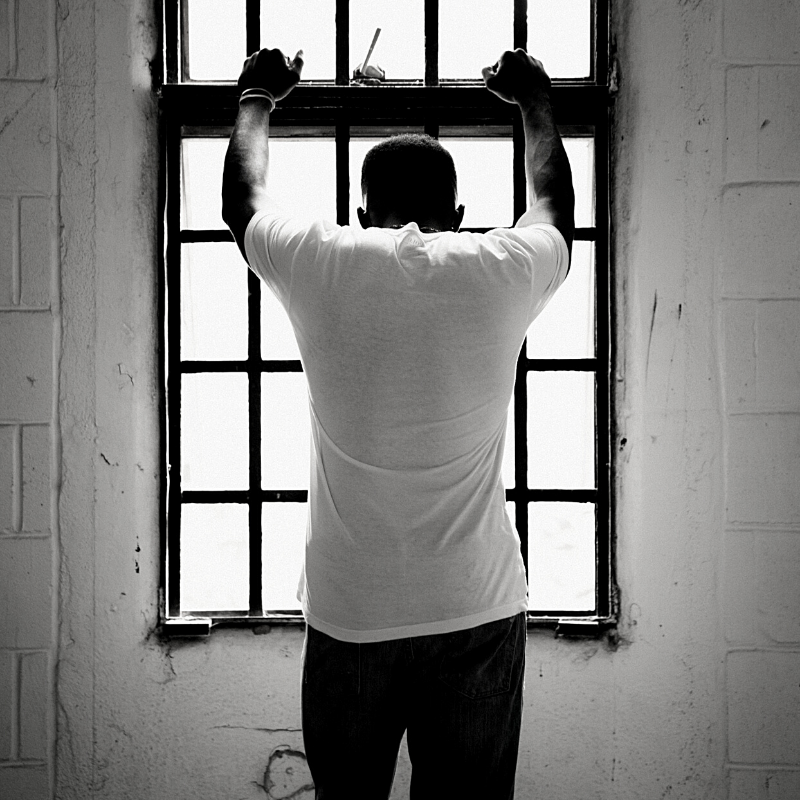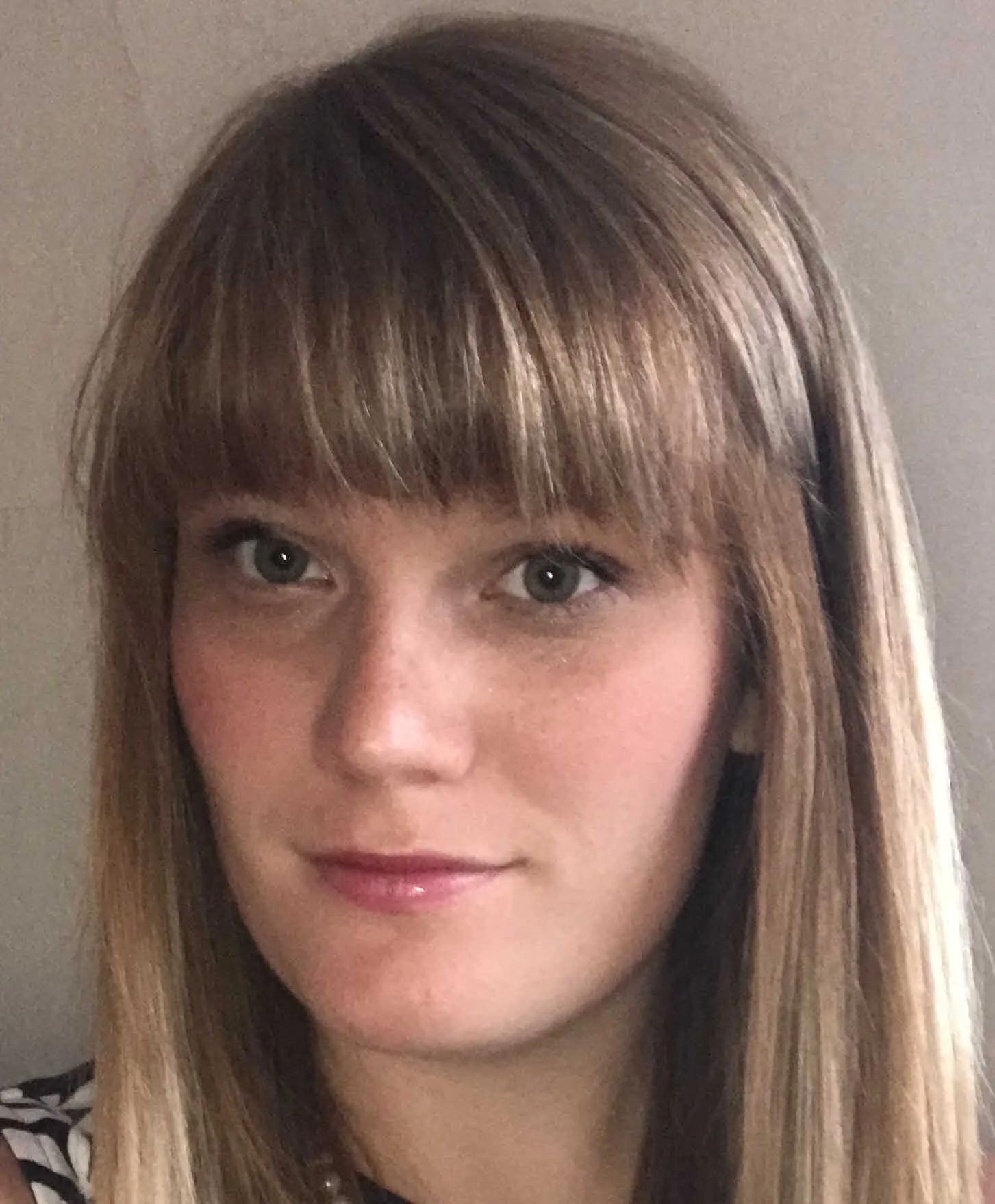28 Tuesdays
By Abbey McClain and Assistant Public Defender Meigan Thompson
A ‘Tuesday’ was like any other day of the week – until Caleb was incarcerated.
Caleb was arrested and incarcerated in the Shelby County Jail in September of 2019. Caleb’s brother, Robert, was concerned. “Caleb is older than me by several years, but I’ve always had to be the “big brother.” Even now, as adults, I try to look out for him,” Robert said. “Caleb has several chronic illnesses – end stage renal disease, diabetes and high blood pressure – and requires a breathing machine to help him breathe. He’s a quiet guy whose involvement with the criminal justice system is limited. My family and I feared that he wouldn’t fare well while incarcerated.”
Tuesday was the only day of the week that the jail would allow family to visit Caleb. So, every Tuesday, without fail, Robert would arrive at the Shelby County Jail, go through security and wait thirty minutes for a thirty-minute visit with his brother. In all, Robert made twenty-eight visits between the day of Caleb’s incarceration and the day he was released from jail.
On the first Tuesday, after several days of incarceration, Caleb appeared behind the double-pane glass visitation window dressed in the jail-issued blue smock and pants. Caleb told Robert that he knew little about the charges alleged against him and expressed disbelief that a magistrate had set his bail bond at $150,000. Robert tried to be reassuring. “The family wants to post your bond, but you know we can’t afford it. I’m sure we’ll be able to get this straightened out at your first court appearance tomorrow.”
On the fourth Tuesday, after one-month of incarceration, Robert could see that parts of Caleb’s arms had swollen into lumpy masses. He knew that this was the result of repeated needle sticks during dialysis treatment. “Are they taking you to dialysis?” Robert asked Caleb. “Most times,” Caleb replied. He added that he rarely stays on the dialysis machine for the full time, however, and that he doesn’t receive all of the medicine that he normally takes.
A ‘Tuesday’ was like any other day of the week – until Caleb was incarcerated.
On the sixteenth Tuesday, after nearly four months of incarceration, Robert went to jail visitation as usual. When he arrived, a jail visitation staff member told him that he could not visit Caleb. “Why can’t I visit him?” Robert asked. The staff member told Robert that Caleb was in medical isolation. “What is ‘medical isolation?’ What does that mean? Is he ok?” Robert asked. The staff member refused to provide Robert with any details. He walked away without knowing more.
The twenty-fourth Tuesday arrived in early March when the world was first learning about the coronavirus. Robert had heard rumors about the presence of the coronavirus in the jail, and he hoped Caleb’s first-hand account would quell any additional doubts about Caleb’s safety. When he spoke with Caleb, however, he was surprised to learn how little Caleb knew. He didn’t know how it was spread, its symptoms, or ways to protect himself while incarcerated.
By the twenty-fifth Tuesday, the jail had changed its visitation procedures due to the coronavirus. Under the new policy, visitation would be administered only by video conference. This change worsened the quality of his visit with Caleb. “The lighting was so bad that I felt like I was having a call with Caleb’s shadow,” Robert said. Caleb told Robert that other incarcerated people on his floor had contracted the coronavirus.
On the twenty-seventh Tuesday, Caleb had developed a cough. “Have you told anybody?” Robert asked his brother. Caleb told Robert that he was trying to suppress his cough as much as possible. He said that he was scared of being treated differently by jail medical and other incarcerated people. Caleb feared that he might be ostracized and refused dialysis treatment.
The following Tuesday, Robert went to the jail to visit Caleb but was unable to do so. The jail had closed visitation to all visitors due to the coronavirus.
On the twenty-ninth Tuesday, in early April, Robert received news from Caleb’s public defender that the judge had agreed to reduce Caleb’s bond to $40,000. Robert and his family pulled their financial resources together and posted Caleb’s bond. Caleb was released from jail later that day – the twenty-ninth Tuesday.
When Caleb was released from jail, Robert was there to pick him up. “I had a mask and gloves ready for Caleb to put on as he left the jail,” Robert said. “I credit my wife, who is a nurse, for our family’s vigilance in practicing safety precautions to reduce our risk of exposure to the coronavirus. I thought we had Caleb covered. Looking back on it, we didn’t.”
“One of the lessons to emerge from this pandemic is that we must take precautions to minimize the risk of community spread of the coronavirus,” said Megan Hubbard, who is a Client Services Specialist with the Law Office of the Shelby County Public Defender. Her duties include linking Public Defender clients with community resources outside of the justice system. “Those precautions have unique requirements for someone who has just spent a considerable amount of time incarcerated in a jail where the coronavirus is rampant.” said Ms. Hubbard. “Making it easier to access coronavirus testing and providing transitional housing to safely self-quarantine are all important resources for the indigent population we serve - many of whom don’t have access to reliable transportation and cannot afford to self-quarantine elsewhere.”
That night, Caleb’s family gathered at his mother’s home. For the first time in seven months, they ate dinner together as a family. “Even though his case was still pending, we were just grateful that Caleb had returned home without having caught the coronavirus in jail.”
The following day, while undergoing dialysis treatment at a dialysis treatment center, Caleb was informed that he had a temperature. He was referred to the hospital. Once at the hospital, Caleb received his first-ever test for the coronavirus. He tested positive. “We felt defeated. The one thing that we had worried so much about and tried so hard to prevent happened – Caleb tested positive for the coronavirus.”
Robert’s next thought turned to his family. “We had all been around Caleb since his return home. Our sixty-five-year-old mother and ninety-two-year-old grandmother were especially at risk because Caleb was living at home with them.” Robert arranged for the entire family to get tested for the coronavirus. While Robert and his wife tested negative, the matriarchs of the family – his mother and grandmother – tested positive.
“Caleb and his family would have benefitted from having a place for Caleb to self-quarantine and get tested before he returned home,” said Hubbard. “The 901 STARR Program would have provided him with that alternative, but it did not become operational until after Caleb was released. 901 STARR is a community linkage program for functionally homeless people who have no safe place to self-quarantine. The program is a collaborative effort that facilitates the lawful release of eligible incarcerated people to temporary housing where they can self-quarantine before reintegrating into the community. . While in temporary housing, 901 STARR participants are tested for the coronavirus and receive additional supports as needed. The program’s genesis arose from a conversation that Shelby County’s Chief Public Defender initiated with the Director of Shelby County’s Division of Community Services as the virus began to spread in Shelby County.”
Caleb, his mother and his grandmother quarantined together for fourteen days. Robert and his wife took turns dropping off food and supplies to them at home. “Our grandmother had the most difficult time. But, as a family, we are fortunate that no one suffered a worse fate at the hands of the coronavirus. We are all okay.”
Now, each Tuesday begins at home. Even though Caleb’s case is ongoing, Robert is grateful that he can be there by his side every step of the way.
*In order to protect our client’s identity, the client’s name has been changed.
Contributing Writer
Abbey McLain, 3L
The University of Memphis- Cecil C. Humphreys School of Law
My experience with The Humanity Project has been difficult because it is hard to see where individuals are being treated so poorly, but it also has been uplifting because I was able to listen to and learn from individuals who have experienced something that I cannot imagine. My hopes are that by sharing these stories their words can act as a catalyst for change.







